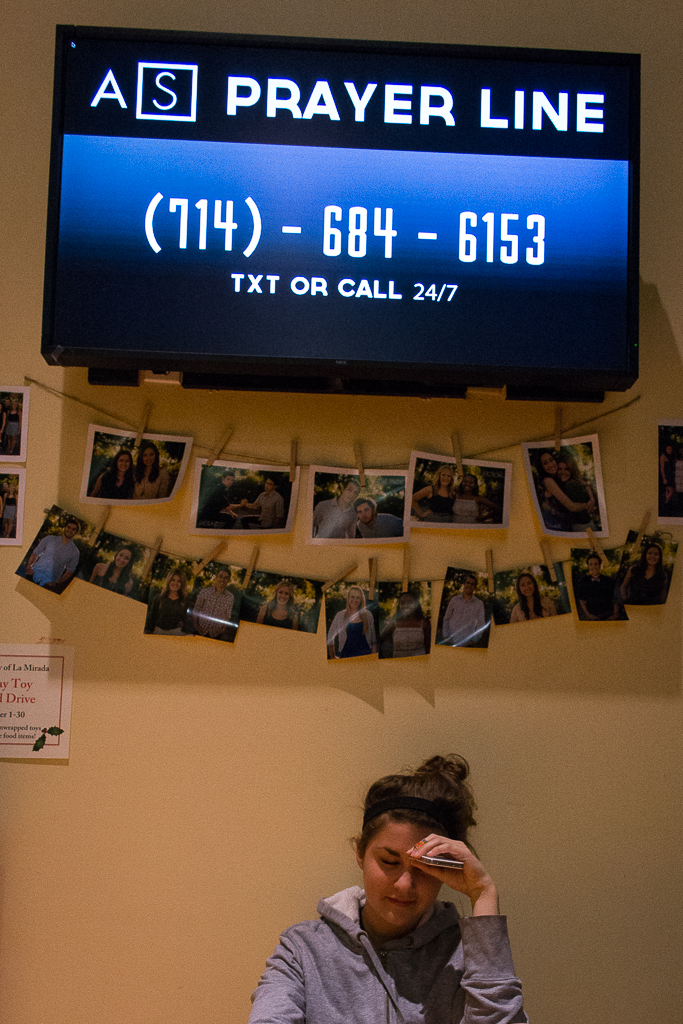In light of receiving texts that raised some concerns, Associated Students is planning to publish a disclaimer for their texting prayer line that launched earlier this semester, according to senior and AS vice president of marketing and communications Richie Gowin.
The idea for the disclaimer came after a meeting between Gowin and Biola Legal Counsel Jerry Mackey.
Whenever someone texts in a prayer request that tells of an incident of sexual abuse of a minor, or that suggests that a person may pose a threat to the community or to himself or herself, AS will have to file a report with Student Care and possibly Campus Safety, according to Laura Igram-Edwards, AS faculty advisor. Because they have the phone number of the requestor, they have a means of contacting the person who texted in a request.
“Fortunately for us, there are a good number of requests that have come in, but there have only been a few that have made us raise this question [of whether to file a report or not],” Igram-Edwards said. There have been approximately 50 texted-in prayer requests since the AS texting line was announced at AS chapel on Sept. 26, according to Gowin.
Private versus Anonymous
Since the text line operates using Google Voice, a person’s phone number appears with their text. For this reason, it is not an anonymous line, according to Gowin.
“It’s private and confidential, but it’s not 100 percent anonymous,” Gowin said.
AS should let students know that their prayer requests will be kept confidential but aren’t anonymous, according to Mackey. Such a disclaimer would help AS be more honest and keep credibility, he said.
If AS didn’t have a phone number or any way to identify the person, Biola would no longer have any legal responsibility, according to Mackey. Now, AS only has to report a text that gives them a reason to believe someone is being harmed, may harm others or if they become aware of the fact that a minor is being sexually abused.
However, Gowin explained that if it was anonymous in totality, AS would be unable to respond with a text saying that they are praying. Gowin wants the number so that people know they are being prayed for.
Why respond?
“[We respond] because we don’t want people to feel like they are texting into nothingness,” he said.
The goal of the prayer line is not to police the student body and report when students confess to breaking the student contract in the requests, Igram-Edwards said. Rather, the desire is for AS to actively pray and to give students a place to ask for prayer.
AS could report if a student texts in a request that hints that he or she broke contract because the line is not anonymous, Igram-Edwards explained.
“So I don’t want to say we never would [report a breach of the student contract], but that’s not the goal and it all goes back to if someone is in danger or endangering others, we would report it,” she said.
Reports that suggest a student is in danger or may endanger others would go to Student Care and to Campus Safety, Igram-Edwards said.







